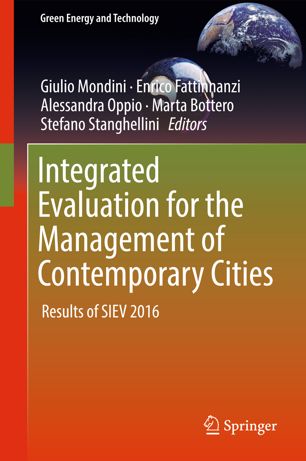

Most ebook files are in PDF format, so you can easily read them using various software such as Foxit Reader or directly on the Google Chrome browser.
Some ebook files are released by publishers in other formats such as .awz, .mobi, .epub, .fb2, etc. You may need to install specific software to read these formats on mobile/PC, such as Calibre.
Please read the tutorial at this link: https://ebookbell.com/faq
We offer FREE conversion to the popular formats you request; however, this may take some time. Therefore, right after payment, please email us, and we will try to provide the service as quickly as possible.
For some exceptional file formats or broken links (if any), please refrain from opening any disputes. Instead, email us first, and we will try to assist within a maximum of 6 hours.
EbookBell Team

4.4
102 reviewsThis book highlights a selection of the best papers presented at the 2016 SIEV conference “The Laudato sì Encyclical Letter and Valuation. Cities between Conflict and Solidarity, Decay and Regeneration, Exclusion and Participation”, which was held in Rome, Italy, in April 2016, and brought together experts from a diverse range of fields – economics, appraisal, architecture, energy, urban planning, sociology, and the decision sciences – and government representatives. The book is divided into four parts: Human Ecology: Values and Paradigms; Integral Ecology and Natural Resource Management; Intergenerational Equity; and How to Enhance Dialogue and Transparency in Decision-making Processes.
Cities are where 72% of all Europeans live, and this percentage is expected to rise to 80% by 2050. Given this trend towards urbanization, cities are continuously growing, which also entails a growing risk of social segregation, lack of security and mounting environmental problems. All too often, today’s cities have to cope with social and environmental crises, shifting the European urban agenda towards regeneration processes. Urban regeneration is more complex than merely renovating existing buildings, as it also involves social and environmental problems, inhabitants’ quality of life, protecting tangible and intangible cultural resources, innovation and business.